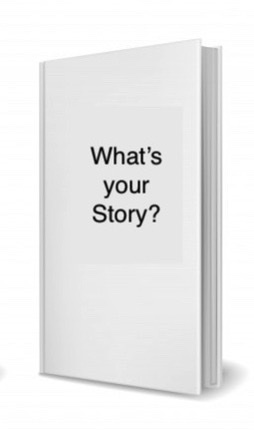Are you sitting comfortably?

Are you sitting comfortably? Then I’ll begin.
We tell stories all day every day, often without realising that’s what we’re doing. Whether it’s a ‘Why Us?’ pitch at work, updating a friend on recent events, a new social media post, or a book you’re reading to your children at bedtime, they are all stories. And they all have an impact.
The power of a good story comes from the waves it creates after it’s told. How far a story travels, beyond its original storyteller, is what dictates the extent of its reach. The actions that follow; and the lasting impressions it creates define its impact. The more a story spreads, inspires and motivates other people, the bigger its ripple effect will be.
In George R. R. Martin’s ‘Game of Thrones’ Tyrion Lannister speaks about the importance of storytelling. “What unites people? Armies? Gold? Flags? Stories! There’s nothing more powerful than a good story. Nothing can stop it. No enemy can defeat it.” The author must have been smiling when he wrote those lines, but he was right to acknowledge the virtue of storytelling.
Why are stories important in business?
Organisations need a compelling narrative to persuade people to join them or buy from them. Otherwise why should anyone choose them? Well told anecdotes, tales and fables can help to shape an organisation’s culture and its destiny.
Stories are at the heart of building the highest form of organisation, which I call a Super-tribe. Stories should be used to support a Super-tribe’s reason for existence, its values and its mission. Stories can illustrate the difference between the winning behaviours that drive success; and the losing ones that must be avoided.
Stories are a critical selling tool. Matching narratives is a crucial part of selling. That involves both the buyer’s story and the seller’s. What does the seller want to sell? Why is it a great purchase? What benefits will it bring? What purpose does the buyer want to achieve? Why will that product or service achieve it? Why is it needed now?
Once upon a time, storytelling relied exclusively on human input. But today, stories don’t have to be told in person. There are so many options available, from physical books and website pages, to films, adverts, audiobooks, online videos and social media. All of these stories can be shared with, or passed on to, other people.
With so many formats to choose from, I’m amazed more businesses don’t tell their stories as well as they could. It’s as if they don’t see the importance of their own story to their staff and customers. If you’re asking yourself the question ‘Who cares about us?’ you need to quickly answer ‘Everyone’ for two very good reasons. Firstly, because everyone enjoys a good story and stories spread. And secondly, if you don’t care enough about who you are, why should anyone else?
What makes a good story?
You have to tell the truth. Fairy stories don’t work.
You just need to get across your organisation’s purpose, its passion and its people through storytelling.
Businesses should try and make more of their heritage, using storytelling to link their past, present and future. Whether there’s a history of success or struggle doesn’t matter. Both can create a call to arms, a reason to get involved. Without a chronicle for your organisation, tomorrow is less meaningful for everyone than it could have been.
It’s not a complicated process. It needs a beginning (it’s origin story), a middle (it’s recent history and achievements) and a happy ending (how it can help its staff and customers). Then other people will care about who you are and what you do. People definitely do buy ‘people’ but only when they’ve heard compelling stories about those people.
A business story doesn’t have to be a sanitised ‘corporate’ version. The human version is always more authentic, always more compelling. That’s why the people profiles are always the most popular pages on business websites. Without them there’s just cold commercialism. With no team stories, there’s no reason to buy.
And now for the happy ending
The best advice is often simple. Discover your story, learn your story, tell your story. Then you can all live happily ever after.
